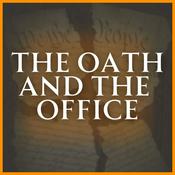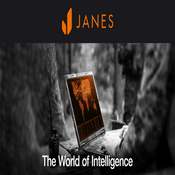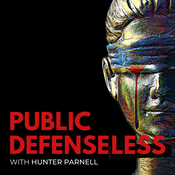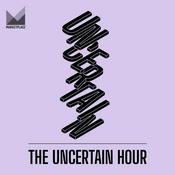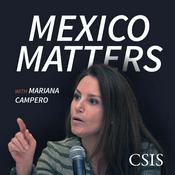Crossing Channels

44 episodes

Is intellectual capital the key to future prosperity?
11/30/2025 | 30 mins.
In this episode of Crossing Channels, Richard Westcott talks to Diane Coyle and César Hidalgo about how knowledge, ideas and intangible assets are becoming central to modern prosperity. They discuss what makes intellectual capital distinctive, how AI may widen or narrow inequalities, and why some places benefit more than others. The conversation also explores the challenges of measuring intangible value and what kinds of skills, institutions and infrastructure are needed for countries and regions to turn intellectual capital into broader, long-term growth.Season 5 Episode 3 transcript: https://www.bennettschool.cam.ac.uk/wp-content/uploads/2025/12/Episode-3-Transcript_Final.pdfFor more information about the Crossing Channels podcast series and the work of the Bennett School of Public Policy and IAST visit our websites at https://www.bennettschool.cam.ac.uk/ and https://www.iast.fr/Follow us on Linkedin and Bluesky.With thanks to:Audio production by Alice WhaleyAssociate production by Burcu Sevde SelviVisuals by Tiffany Naylor and Pauline AlvesMore information about our host and guests:Podcast hostRichard Westcott is an award-winning journalist who spent 27 years at the BBC as a correspondent/producer/presenter covering global stories for the flagship Six and Ten o’clock TV news as well as the Today programme. Last year, Richard left the corporation and he is now the communications director for Cambridge University Health Partners and the Cambridge Biomedical Campus, both organisations that are working to support life sciences and healthcare across the city.Podcast guestsDiane Coyle is the Bennett Professor of Public Policy at the University of Cambridge. She is the Research Director at the Bennett School of Public Policy. Diane’s latest book is The Measure of Progress: Counting what really matters.Her own research focuses on productivity, the digital economy and AI policy, and economic measurement. Diane is currently a member of the UK Government’s Industrial Strategy Council, the New Towns Taskforce, and advises the Competition and Markets Authority. Diane was awarded a DBE in 2023 for her contribution to economics and public policy.César Hidalgo is a Chilean-Spanish-American scholar known for his contributions to economic complexity and for his applied work on data visualization and artificial intelligence. Hidalgo is a tenured professor at the Toulouse School of Economics’ (TSE) Department of Social and Behavioral Sciences and the head of the Center for Collective Learning a multidisciplinary research laboratory with offices at Institute for Advanced Study (IAST) at TSE and the Corvinus Institute of Advanced Studies (CIAS) at Corvinus University of Budapest. He is also an Honorary Professor at the Alliance Manchester Business School of the University of Manchester.

What really drives inequality?
11/03/2025 | 31 mins.
In this episode of Crossing Channels, Richard Westcott talks to Jack Newman, Angélique Acquatella and Pinelopi Koujianou Goldberg about the forces that shape inequality today. Drawing on economics, politics and public policy, our guests examine why gaps persist, look at the roles of technology and trade, explore evidence on health inequalities in the UK, and discuss the delivery gap between national ambitions and local capacity. They share examples of when place-based approaches can work, what gets in the way, and how institutions can support more inclusive growth.Season 5 Episode 2 transcript: MS Word / PDFListen to this episode on your preferred podcast platform: For more information about the Crossing Channels podcast series and the work of the Bennett School of Public Policy and IAST visit our websites at https://www.bennettschool.cam.ac.uk/ and https://www.iast.fr/.With thanks to:Audio production by Alice WhaleyAssociate production by Burcu Sevde SelviVisuals by Tiffany Naylor and Pauline AlvesMore information about our podcast host and guests:Podcast hostRichard Westcott is an award-winning journalist who spent 27 years at the BBC as a correspondent/producer/presenter covering global stories for the flagship Six and Ten o’clock TV news as well as the Today programme. Last year, Richard left the corporation and he is now the communications director for Cambridge University Health Partners and the Cambridge Biomedical Campus, both organisations that are working to support life sciences and healthcare across the city.Podcast guestsAngélique Acquatella is an Assistant Professor at the Toulouse School of Economics. She received her PhD in Economics at Harvard University. During her doctoral studies, she was an NBER Aging and Health Fellow and a National Science Foundation Fellow. Angélique's research looks at the optimal design of healthcare policy, within two main substantive areas: public health insurance systems and pharmaceutical payment policy. She is interested in policy designs that advance health equity, minimise risk for the most disadvantaged individuals, and incentivise socially valuable investments. Jack Newman is a public policy researcher specialising in decentralisation and place-based policy. He is an Affiliated Researcher at the Bennett School of Public Policy, and a Research Associate at the University of Manchester, investigating the changing spatial footprint and governance structures of the NHS. In recent years, Jack has researched spatial inequality, local institutions, and healthy urban development at the Universities of Bristol, Cambridge, Manchester, Surrey, and Leeds. Pinelopi (Penny) Koujianou Goldberg is the Elihu Professor of Economics and Global Affairs and an Affiliate of the Economic Growth Center at Yale University. She holds a joint appointment at the Yale Department of Economics and the Jackson School of Global Affairs. She is a member of the National Academy of Sciences and the American Academy of Arts and Sciences, recipient of Guggenheim Memorial Foundation and Sloan Research Fellowships, and recipient of the Bodossaki Prize in Social Sciences. Pinelopi is an applied microeconomist drawn to policy-relevant questions in trade and development.

Are universities ready for the age of AI?
10/05/2025 | 31 mins.
In this first episode of series five, our Crossing Channels podcast host Richard Westcott welcomes three affiliated experts to explore how artificial intelligence is transforming higher education.Jonathan Grant (Bennett School of Public Policy), and Jean-François Bonnefon and François Poinas (Toulouse School of Economics (TSE) & the Institute for Advanced Study in Toulouse (IAST)) share their different perspectives rooted in public policy, psychology, and economics.They examine how AI is reshaping the way universities teach, conduct research, and connect with government, business, and civil society. They look into how generative tools are changing learning and assessment, how students and academics can build trust in AI systems, and what the rise of these technologies means for the skills and values that universities aim to foster.Listen to this episode on your preferred podcast platformSeason 5 Episode 1 transcriptTo find out more about the work of the Bennett School of Public Policy and IAST visit our websites: https://www.bennettschool.cam.ac.uk/ and https://www.iast.fr/.Follow us on Linkedin and BlueskyWith thanks to:Audio production by Alice WhaleyAssociate production by Burcu Sevde Selvi, Bennett School of Public PolicyVisuals by Tiffany Naylor and Pauline Alves, IAST, TSEMore information about our host and guests:Podcast hostRichard Westcott is an award-winning journalist who spent 27 years at the BBC as a correspondent/producer/presenter covering global stories for the flagship Six and Ten o’clock TV news as well as the Today programme. Last year, Richard left the corporation and is now the Communications Director for Cambridge University Health Partners and the Cambridge Biomedical Campus, both organisations that are working to support life sciences and healthcare across the city.Podcast guestsJean-François Bonnefon, is Director of the Social and Behavioural Sciences Department at Toulouse School of Economics (TSE) and the Institute of Advanced Studies in Toulouse (IAST). Jean-François is a CNRS research director, affiliated with TSE and IAST, and a cognitive psychologist whose work spans computer science, psychology, and economics. He is renowned for his expertise in moral preferences and decision-making, and is particularly recognised for his contributions to the ethics of advanced artificial intelligence, especially in autonomous driving. Jonathan Grant is an Affiliated Researcher at the Bennett School of Public Policy, and Vice President for Strategic Initiatives at the King Abdullah University of Science and Technology (KAUST). In his work for KAUST, he leads efforts to enhance the institution's global and national impact through transformative academic programming and strategic partnerships. An expert in health R&D policy, research impact, and the evolving role of universities, Jonathan has worked across Europe, the Middle East, North America, and Australia. François Poinas is Assistant Professor and Dean of Education at Toulouse School of Economics since October 2023. After completing his PhD in Economics at University Lumière Lyon 2, he joined TSE and University Toulouse Capitole in 2010. His research is about applied microeconomics, focusing on labor and education economics. He produces scientific articles on schooling, the dynamics of intra-firm promotions, and migration decisions.

How does migration change our world?
8/04/2025 | 26 mins.
In this final episode of season 4, Richard Westcott is joined by Catherine Barnard (University of Cambridge) and Emmanuelle Auriol (Toulouse School of Economics) to explore the economic, legal, and social dimensions of migration.Drawing on insights from law and economics, the conversation explores how migration affects labour markets, legal protections, and social cohesion — from post-Brexit realities in Great Yarmouth, UK, to global questions of fairness and opportunity. The episode examines who migrates and why, the limits of current border regimes, and what more effective and ethical migration policies could look like.Season 4 Episode 10 transcript: https://www.bennettschool.cam.ac.uk/wp-content/uploads/2025/08/S04E10-Final-transcript.pdfListen to this episode on your preferred podcast platform: https://pod.fo/e/309b75For more information about the Crossing Channels podcast series and the work of the Bennett School of Public Policy and the Institute for Advanced Study in Toulouse, visit our websites at https://www.bennettschool.cam.ac.uk/ and https://www.iast.fr/.Follow us on Linkedin, Bluesky and X. With thanks to:Audio production by Steve HankeyAssociate production by Burcu Sevde SelviVisuals by Tiffany Naylor and Aurore CarbonnelMore information about our host and guests:Richard Westcott is an award-winning journalist who spent 27 years at the BBC as a correspondent/producer/presenter covering global stories for the flagship Six and Ten o’clock TV news as well as the Today programme. In 2024, Richard left the corporation and he is now the communications director for Cambridge University Health Partners and the Cambridge Biomedical Campus, both organisations that are working to support life sciences and healthcare across the city. @BBCwestcottEmmanuelle Auriol is a French economist and professor at Toulouse School of Economics. Her research combines theory and empirics in industrial organisation and development economics, focusing on market failures driven by rent-seeking, cognitive biases, and discriminatory norms. Her work blends neoclassical and behavioural economics and has been published in top journals. A CNRS Bronze Medalist and member of the Institut Universitaire de France, she is also a fellow of the EEA, CEPR, CESifo, and EUDN. She contributes to policy and development work with institutions like the French Development Agency and the World Bank. She serves on the Conseil d'Analyse Économique, is a member of the Cercle des Économistes, and has authored two award-winning books.Catherine Barnard FBA, FLSW, FRSA is Professor of European Law at the University of Cambridge. She is the author of EU Employment Law (Oxford, OUP, 2012, 5th ed.), The Substantive Law of the EU: The Four Freedoms, (Oxford, OUP, 2025, 8th ed), and (with Peers ed), European Union Law (Oxford, OUP, 2023, 4th ed). She is a member of the European Commission funded European Labour Law Network (ELLN). She is a Senior Fellow of the UK in a Changing Europe where she considers the legal issues around migration, together with the legal and constitutional issues associated with Brexit, in particular the Withdrawal Agreement and the Trade and Cooperation Agreement. She has appeared on the main media channels - BBC, ITV and Sky - as well as some of the more specialist programmes such as Law in Action, Woman's Hour, Question Ti

What is the value of speaking other languages?
7/14/2025 | 32 mins.
In this episode, Richard Westcott is joined by Wendy Ayres-Bennett and Benjamin Pitt to explore a big, everyday question: what is the value of speaking other languages? The conversation looks at how the languages we speak shape our sense of identity, influence how we think and reason, and affect how we relate to others. We explore how multilingualism can foster social cohesion, support cognitive flexibility, and even boost economic opportunities.Our guests discuss why language is never just a tool for communication and why recognising its deeper value matters for how we design education, shape public policy, and navigate life in an increasingly interconnected world.This episode is hosted by Richard Westcott (Cambridge University Health Partners and the Cambridge Biomedical Campus), and features experts Benjamin Pitt (IAST) and Wendy Ayres-Bennett (University of Cambridge). Season 4 Episode 9 transcriptListen to this episode on your preferred podcast platform For more information about the Crossing Channels podcast series and the work of the Bennett Institute and IAST visit our websites at bennettinstitute.cam.ac.uk and iast.frFollow us on Linkedin, Bluesky and X. With thanks to:Audio production by Steve HankeyAssociate production by Burcu Sevde SelviVisuals by Tiffany Naylor and Aurore CarbonnelMore information about our host and guests:Richard Westcott is an award-winning journalist who spent 27 years at the BBC as a correspondent/producer/presenter covering global stories for the flagship Six and Ten o’clock TV news as well as the Today programme. Last year, Richard left the corporation and he is now the communications director for Cambridge University Health Partners and the Cambridge Biomedical Campus, both organisations that are working to support life sciences and healthcare across the city. @BBCwestcottBenjamin Pitt is a cognitive scientist and current Research Fellow at the Institute for Advanced Study in Toulouse. He studies how language and culture shape the way people think, and what this cognitive diversity can tell us about the structure of the human mind. He holds degrees from Brown University and the University of Chicago, and – starting next Spring – he will be joining the Department of Psychological and Brain Sciences at the University of Massachusetts, as assistant professor and director of the “Cognitive Construction” lab.Wendy Ayres-Bennett is Emerita Professor of French Philology and Linguistics, University of Cambridge. She was Principal Investigator (2016-2021) on the AHRC-funded, multi-disciplinary research project, Multilingualism: Empowering Individuals, Transforming Societies, which promoted the value of languages for key issues of our time and explored the benefits of language learning for individuals and societies. An AHRC-funded follow-on project Promoting Language Policy provided research-based evidence for moving languages higher up the political agenda. She currently holds a Leverhulme Trust Emeritus Fellowship to write a book on language policy in the UK.
More Government podcasts
Trending Government podcasts
About Crossing Channels
Listen to Crossing Channels, Strict Scrutiny and many other podcasts from around the world with the radio.net app

Get the free radio.net app
- Stations and podcasts to bookmark
- Stream via Wi-Fi or Bluetooth
- Supports Carplay & Android Auto
- Many other app features
Get the free radio.net app
- Stations and podcasts to bookmark
- Stream via Wi-Fi or Bluetooth
- Supports Carplay & Android Auto
- Many other app features


Crossing Channels
download the app,
start listening.







